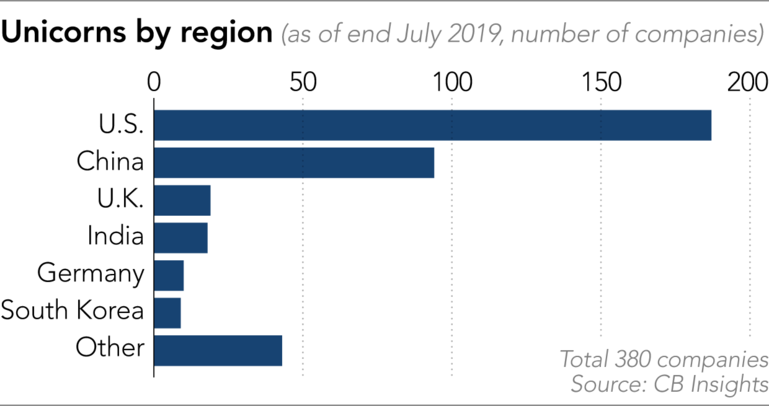Innovation leads to growth, and growth really matters:
In the late 1950s, Nobel Laureate Robert Solow attributed about seven-eighths of the growth in U.S. GDP to technical progress. As Solow later commented: “Adding a couple of tenths of a percentage point to the growth rate is an achievement that eventually dwarfs in welfare significance any of the standard goals of economic policy.”
Although the number of unicorns is a noisy measure of innovation, the relative number of unicorns in the EU may be a harbinger of future low growth, and is perhaps due to the burden of the EU regulation. In my field of antitrust, there are big differences in how similar laws are enforced, e.g., CPI article or SSRN:
- EC is run by politicians; US agencies by antitrust professionals
- EU skepticism of markets vs. US skepticism of regulation (since 1980)
- EU regulation vs. US law enforcement (adversarial)
- EU weak due process: remedies w/out adversarial hearing, 3rd party discovery, or cross examination
- EU harm to competitors vs. US harm to competition
- EU does not screen out bad theories (not supported by evidence) vs. US Daubert rules

No comments:
Post a Comment